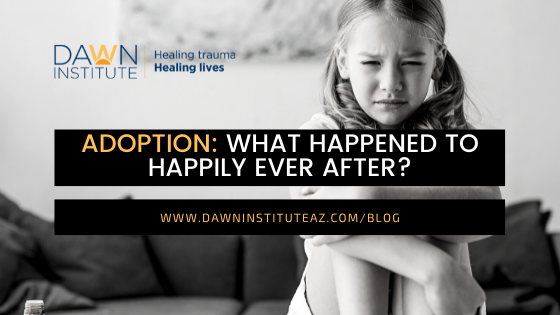As we enter adoption month, it’s worth saying this is a beautiful month to celebrate. Thank you to all the families who selflessly give their hearts, time, and selves to support children who need to belong. Thank you to the communities who support these families. This is one thing that makes adoption so beautiful.
It’s not one sided, though. As an adoptive parent, I have learned so much about myself and about parenting. My son, in all of his sweet innocence, has taught me so much about what it means to give selflessly, to be patient, and to love unconditionally. I am thankful that he has been blessed into the life of my family through adoption.
From the Outside
From the outside, it can be easy to paint the story of adoption as a pretty picture. I did not learn about myself because this process has been easy. In fact, often times we learn most through the struggle. The past ten year of being an adoptive parent has been hard.
Let me start by taking a moment to paint a pre-adoption concept: We, being a “good” family, would bring in a child in need, love that child, and everything would be ok. We would live happy ever after. Simple. Sweet.
Little did I know at the time, for some children, some of the long-term effects of trauma and substance exposure during pregnancy are irreversible. My son has both. No matter how much I love him, I cannot reverse the effects alcohol had by dissolving brain tissue while he was developing during pregnancy. Some parents cannot reverse the developmental delays that occur when children live in high, chronic stress before and after birth. Shifting children from aggressive behavior to empathy is hard. Shifting children from isolation and dissociation to connection is hard. This is the picture I just was not able to see ten years ago. I see it now.
So, what happened to the happily ever after?
I had to shift it.
I remember sitting in a meeting with my son’s school support staff, which I have to do every year to explain his needs. At one point in the meeting I made a comment about how I was prepared that college may not be part of his future due to some of the cognitive deficits I saw coming to light. As well intended as she was, one of the administrators was quick to remind me that he is still young, and we don’t want to “jump on that bandwagon too soon.”
I do appreciate that people can help me not live by fear or jump to conclusions so in some ways I’m grateful for the feedback. In other ways, I think at that time there was a grieving process that was happening for me. I had to let go of the idea that he would function like my biological children. That he would be his own person outside of an idealistic picture I had created about adoption.
This is true for so many adoptive parents.
The happily ever after for many of us does not come. Instead, we grieve. We cry. We wrestle to change our expectation of what this should have been like. And many times, we do this silently because people do not understand this. They can’t until they’ve walked in these shoes. Treaded this same path.
And for some, this path will always hurt a little. When we can come to a place where we accept this path and adjust our expectation. When we grieve our hopes and dreams of what should have been. Grieve the loss of how we wanted our family to be. Then we can find a different “happily ever after.” That happily ever after might a closer sense of community. Learning about our needs and working through them. Teaching us to rely more on faith practices. Learning to be patient. To truly love unconditionally. To let go of control. In some ways this is a happily ever after. Just an adjusted one.
Thank you, beautiful humans, for adopting. Thank you, beautiful children, for teaching us. Let’s celebrate together: adoption, along with the growth and healing that comes from this.
Contact us for ongoing support for your family.

